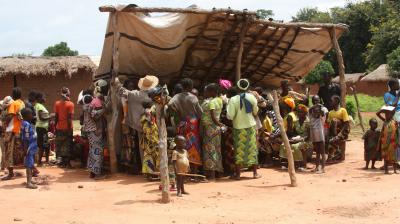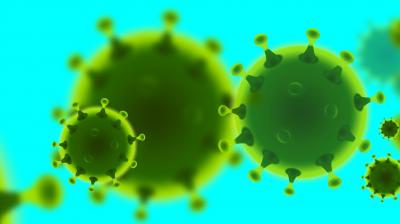Global health challenges require a more coherent Dutch response
The Dutch parliament discusses its policy contributions in the strengthening of health systems via development cooperation programmes. Specific attention will be paid to the containment of transnational epidemics, such as the Ebola outbreak, ongoing HIV/AIDS epidemics in several parts of the world and the Zika viral disease that has spread to large parts of the Americas and some countries in South-East Asia.
The mandated international institution coordinating and addressing international health crises is the World Health Organization (WHO). In the wake of the Ebola epidemic, much has been written about the weak capacity of the WHO to perform its task. Over the last few decades the WHO has been slowly eroded by its powerful member states. They preferred to finance other global health initiatives, notably the Global Fund to fight AIDS, Tuberculosis and Malaria (GF) and the GAVI Alliance. These have a narrower, disease-focused mandate and are perceived as more efficient in programme execution.
Countries still finance the WHO, but have done this through ‘tied’ funding in which the donors define the specific allocation of funds. In the case of the Netherlands, funding was made available for the WHO’s sexual and reproductive health research unit and for work on non-communicable diseases, such as diabetes. Since most countries fund the WHO in this way, it only has autonomy over 25% of its funds (the so-called member states’ contribution which has been frozen since the mid-1980s).
When the Ebola epidemic hit, countries realised they had ignored investments in health systems and needed to respond adequately. They had neglected global health security and the main organisation responsible for securing this international public good, the WHO. This ‘shock’ led to strong calls to reform the global health system that had become mired in institutional gridlock. The Dutch ‘mea culpa’ in its evaluation of the engagement with the WHO from 2011-2015 must be understood in this light. The Dutch government has indicated that it will (financially) support: 1) a further reform of the WHO to strengthen its crisis response capacity; 2) full implementation of the International Health Regulations, the main mechanism to build and support core capacities of countries in preventing outbreaks; and 3) an increase in the non-tied member state contribution to the WHO, something to which it had already committed, incidentally, in EU Council Conclusions on Global Health adopted in 2010.
Institutional memory in global health is poor. Soon there could be other international priorities and health could be reduced (again) to a minor issue in foreign policy. This is the traditional understanding of health cooperation. It only becomes a real diplomatic concern for countries when health issues risk impacting national security or when they have a bearing on trade relations.
However, due to a ‘deep’ globalisation in transnational trade and economic relations, growing income – and hence health – inequalities, increasing global mobility of persons, as well as the impacts of climate change, transnational health challenges have become more of a permanent issue for sustainable development. They must therefore be secured as an international public good. Traditionally, the ‘domestic’ health agenda was separated from the ‘international’ health agenda, which was focused on improving health outcomes in developing countries. Transnational health challenges such as epidemics, antimicrobial resistance, vector-borne diseases augmented through climate change (such as tick-borne diseases and dengue fever), the global obesity pandemic and the international movements of health workers, refugees and medical tourists require transnational solutions and firm international cooperation.
Several countries such the US, Germany, France and Sweden as well as the EU have anticipated this trend and developed a global health strategy in which they outline how they view and aim to influence modern global health issues. The German Global Health Strategy stipulates government-wide policy objectives on its engagement with international institutions such as the EU and the WHO, the values on which its policies are based (the Right to Health) and priority topics for their engagement. These are support for strengthening Universal Health Coverage schemes, addressing antimicrobial resistance and developing medicines for neglected diseases. Last year Germany made global health issues central to G7 international cooperation. Japan has continued this trend during its current presidency of the G7.
Such a strong commitment on global health could be pursued by the Netherlands as well. It would increase its credibility as a newly elected WHO Executive Board Member. Interdepartmental cooperation between the ministries of health, economic affairs, and foreign affairs in this area has recently improved. Nevertheless, the Dutch approach remains a patchwork of different policies conducted through several channels and actors. They range from sexual and reproductive health rights programmes and considerable financial support for the GF and GAVI economic diplomacy to developing the Dutch Top Sector Life Sciences and Health and active involvement in the global health security initiative with a high-level summit to be organised in Rotterdam in October 2016.
While all these global health involvements have merits in themselves, a coherent strategy is lacking. This renders health policy development and implementation rather haphazard, malleable by the policy entrepreneurs and fashions of the day, leading to a delayed, reactive approach to global health challenges, such as the delayed engagement in restructuring and financing the WHO after the Ebola outbreak. Developing a Dutch global health strategy could have government and societal actors more involved in preventing future global health problems. Thinking more strategically about the future global health risks and policy solutions for a healthier global society would be a relevant initiative for a small country thoroughly interconnected with the rest of the world.









